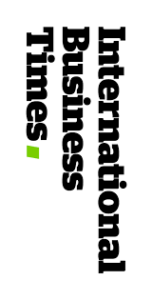Balancing your professional and personal life can be challenging, but it’s essential. Here’s how to improve your work-life balance today.Often, work takes precedence over everything else in our lives. Our desire to succeed professionally can push us to set aside our personal life.
What is work-life balance, and why is it important?
A good work-life balance, as many of career expert say, has numerous positive effects, including less stress, a lower risk of burnout and a greater sense of well-being. This not only benefits employees but employers, too. Employers that offer options as telecommuting or flexible work schedules can help employees have a better work-life balance. Here are eight ways to create a better work-life balance, as well as how to be a supportive manager.
1.Accept that there is no ‘perfect’ work-life balance.
When you hear “work-life balance,” you probably imagine having an extremely productive day at work, and leaving early to spend the other half of the day with friends and family. While this may seem ideal, it is not always possible. Balance is achieved over time, not each day.
2.Find a job that you love.
Although work is an expected societal norm, your career shouldn’t be restraining. If you hate what you do, you aren’t going to be happy, plain and simple. You don’t need to love every aspect of your job, but it needs to be exciting enough that you don’t dread getting out of bed every morning.
3.Prioritize your health.
Your overall physical, emotional and mental health should be your main concern. Overworking yourself prevents you from getting better, possibly causing you to take more days off in the future. Prioritizing your health doesn’t have to consist of radical or extreme activities. It can be as simple as daily meditation or exercise.
4.Don’t be afraid to unplug.
Cutting ties with the outside world from time to time allows us to recover from weekly stress, and gives us space for other thoughts and ideas to emerge. Taking that time to unwind is critical to success and will help you feel more energized when you’re on the clock.
5.Take a vacation.
Sometimes, truly unplugging means taking vacation time and shutting work completely off for a while. Employees are often worried that taking time off will disrupt the workflow, and they will be met with a backlog of work when they return. This fear should not restrict you from taking a much-needed break.
6.Make time for yourself and your loved ones.
While your job is important, it shouldn’t be your entire life. You were an individual before taking this position, and you should prioritize the activities or hobbies that make you happy. Also [remember] that everyone is replaceable at work, and no matter how important you think your job is, the company will not miss a beat tomorrow if you are gone.
7.Set boundaries and work hours.
Set boundaries for yourself and your colleagues, to avoid burnout. When you leave the office, avoid thinking about upcoming projects or answering company emails. Consider having a separate computer or phone for work, so you can shut it off when you clock out. If that isn’t possible, use separate browsers, emails or filters for your work and personal platforms.
8.Set goals and priorities.
Pay attention to when you are most productive at work and block that time off for your most important work-related activities. Avoid checking your emails and phone every few minutes, as those are major time-wasting tasks that derail your attention and productivity. Structuring your day can increase productivity at work, which can result in more free time to relax outside of work.











